What You Need To Know About the Perils of Dehydration: Effects on the Body, Risks, Diseases, Benefits of Being Hydrated, and 3 Simple Natural and Easy Ways to Hydrate the Body
Dehydration: Effects on the Body, Risks, Diseases, Benefits of Being Hydrated, and 3 Simple Natural and Easy Ways to Hydrate the Body
Overview
Dehydration is a condition that occurs when the body loses more fluids than it takes in, leading to an imbalance in the body’s water content. While the immediate consequences of being dehydrated are well-known, such as fatigue, dizziness, and impaired cognitive function, recent studies have shed light on a potential link between being chronically dehydrated and the formation of cancerous cells.
Water is essential for life, and our bodies require it to function correctly. The human body relies on proper hydration for numerous vital functions. When the body loses more fluids than it takes in, we are considered dehydrated, leading to an imbalance that can have severe consequences. Not drinking enough water or drinking water tainted with toxins and heavy metals such as lead, fluoride, chlorine, pesticides, etc. can lead to damage to your vital organs and dehydration conditions that can cause serious health problems. This is why it is critical to filter your water before drinking.
In this article, we will explore the various diseases and health conditions caused by dehydration, explore its effects on cancer formation, highlight the scientific evidence supporting this connection, discover the intriguing connection between autoimmune diseases and dehydration, and delves into the underlying mechanisms and emphasize the importance of maintaining proper hydration.
Effects of Dehydration on the Body
Dehydration occurs when the body loses more fluids than it takes in, and it can affect many systems in the body. The first sign of not being properly hydrated is often thirst, but other symptoms can include:
- Dry mouth and throat
- Dark urine
- Fatigue
- Headaches
- Dizziness or lightheadedness
- Confusion or irritability
- Rapid heartbeat
- Sunken eyes
- Dry skin
- In severe cases, seizures or unconsciousness
When we are dehydrated, it can also affect the digestive system, leading to constipation, bloating, and stomach cramps. When your body cries to be hydrated, avoid the likes of carbonated drinks, alcohol, drinks highly saturated with sugar, etc. because these drinks don’t quench your thirst.
Risks and Diseases Caused by Dehydration
Dehydration can lead to several health risks and diseases. Some of the most common include:
- Heatstroke and Heat Exhaustion
Dehydration is a significant risk factor for heatstroke and heat exhaustion, particularly in hot and humid environments. The body loses water through perspiration, and when water levels are not adequately replenished, the body’s internal temperature rises to dangerous levels. According to a study published in the journal “Clinical Sports Medicine,” heat-related illnesses are associated with inadequate hydration and electrolyte imbalances. Symptoms of heatstroke and heat exhaustion include dizziness, confusion, rapid heartbeat, nausea, and even loss of consciousness.
- Urinary Tract Infections (UTIs)
Insufficient water intake can contribute to the development of urinary tract infections (UTIs). Being dehydrated reduces urine production, leading to concentrated urine that irritates the urinary tract and facilitates bacterial growth. A study published in the journal “Epidemiology and Infection” found that inadequate hydration was associated with an increased risk of UTIs in women. Proper hydration promotes regular urination and helps flush out bacteria, reducing the risk of infection.
- Kidney Stones
Being dehydrated is a significant risk factor for kidney stone formation. When the body lacks sufficient fluids, urine becomes highly concentrated, allowing minerals and salts to crystallize and form stones in the kidneys. According to research published in the “American Journal of Epidemiology,” maintaining adequate fluid intake is crucial in preventing kidney stone formation. Proper hydration dilutes urine, reducing the likelihood of kidney stone development.
- Constipation
Inadequate water intake can contribute to constipation, a condition characterized by infrequent bowel movements and difficulty passing stool. When the body lacks sufficient fluids, the colon absorbs more water from the waste, resulting in dry and hard stools. A systematic review published in the journal Alimentary Pharmacology and Therapeutics highlighted the positive association between dehydration and constipation. Proper hydration ensures softer and more comfortable bowel movements, preventing constipation and promoting healthy digestion.
- Muscle Cramps
Being Dehydrated often leads to electrolyte imbalances, particularly low levels of sodium, potassium, and magnesium. These essential minerals play a crucial role in muscle function and contraction. A study published in the Journal of Athletic Training reported that dehydration and electrolyte imbalances were common triggers for muscle cramps among athletes. Ensuring adequate fluid intake, especially during physical activity, helps replenish electrolytes and reduces the risk of muscle cramps.
- Impaired Cognitive Function
The brain heavily relies on proper hydration to function optimally. When we are dehydrated, it can impair cognitive function, leading to decreased focus, poor concentration, and reduced alertness. Research published in the Journal of Nutrition demonstrated that mild dehydration can adversely affect cognitive performance and mood in young adults. By staying hydrated, we support our cognitive abilities and maintain mental clarity.
The Impact of Dehydration on Cellular Processes and Cancer
Proper hydration is vital for maintaining the body’s normal physiological functions, including the efficient functioning of cells. When the body lacks sufficient water, cellular processes can be disrupted, potentially leading to DNA damage, impaired DNA repair mechanisms, and compromised immune system responses. Several studies have indicated that being dehydrated may contribute to an environment conducive to cancer development.
DNA Damage and Repair
When we are dehydrated, it can increase the susceptibility of DNA to damage due to oxidative stress. The body’s natural defense mechanisms against DNA damage, such as repair enzymes, may not function optimally in a dehydrated state. A study published in the Journal of Photochemistry and Photobiology demonstrated that dehydrated cells experienced higher levels of DNA damage compared to hydrated cells when exposed to ultraviolet radiation, a known risk factor for skin cancer.
Impaired Immune System
A well-functioning immune system plays a crucial role in detecting and eliminating cancerous cells. When we are chronically dehydrated, it can weaken the immune system, compromising its ability to detect and eradicate abnormal cells effectively. Research published in the journal Nutrients showed that when we are dehydrated, it can lead to an imbalance in immune cell populations, reduced activity of natural killer cells, and impaired cytokine production, all of which are important for immune surveillance against cancer.
Inflammation and Tumor Microenvironment
Chronic dehydration can contribute to a pro-inflammatory state within the body, promoting the growth and progression of cancer cells. Inflammation plays a crucial role in the formation of the tumor microenvironment, facilitating angiogenesis (the formation of blood vessels that supply nutrients to tumors), immune evasion, and metastasis. A study in the journal Nature Communications highlighted the impact of dehydration-induced inflammation on tumor growth and spread in animal models
Clinical Evidence and Observational Studies
Although direct clinical evidence linking dehydration to cancer formation in humans is limited, observational studies provide insights into the potential relationship. A population-based cohort study published in the American Journal of Epidemiology found that individuals with lower daily water intake had a higher risk of developing bladder cancer compared to those with higher water intake. Similarly, a study published in the European Journal of Nutrition reported an association between inadequate hydration and an increased risk of colorectal cancer.
Autoimmune Disease and Dehydration
Autoimmune diseases, characterized by the immune system attacking healthy cells, tissues, and organs, have become a growing concern in recent years. These conditions, such as rheumatoid arthritis, lupus, and multiple sclerosis, can significantly impact an individual’s quality of life. While genetics, environmental factors, and immune dysregulation are well-known contributors to autoimmune diseases, a lesser-known factor that may play a role is the lack of hydration. Emerging research suggests a potential link between lack of hydration and the development or exacerbation of autoimmune diseases. This article explores the intriguing connection and delves into the underlying mechanisms.
The Impact of Dehydration on the Immune System
Maintaining proper hydration levels is crucial for optimal bodily function, including a well-balanced immune system. Chronic dehydration, often due to insufficient fluid intake, can adversely affect immune responses and compromise the body’s defense mechanisms. Being dehydrated impairs the body’s ability to transport nutrients, eliminate toxins, and regulate cellular processes, leading to a cascade of events that may trigger or worsen autoimmune conditions.
Inflammatory Pathways and Autoimmunity
Studies have demonstrated that inadequate water consumption and not being well hydrated can promote systemic inflammation, which plays a pivotal role in the development of autoimmune diseases. Dehydration-induced inflammation increases the release of pro-inflammatory molecules, such as cytokines and chemokines, which can further disrupt immune homeostasis. Over time, chronic inflammation can contribute to the breakdown of self-tolerance, leading to the activation of autoreactive immune cells and the initiation of autoimmune processes.
Impaired Lymphatic System Function
The lymphatic system, responsible for maintaining fluid balance and removing waste materials from tissues, relies heavily on adequate hydration. Dehydration can hinder lymphatic flow, impairing the body’s ability to eliminate cellular debris and toxins effectively. Consequently, this accumulation of waste products may trigger immune responses, potentially leading to autoimmune reactions and tissue damage.
Dehydration and Intestinal Permeability
One hallmark of autoimmune diseases is increased intestinal permeability, often referred to as “leaky gut.” Emerging evidence suggests that being dehydrated may contribute to gut barrier dysfunction, facilitating the passage of harmful substances into the bloodstream. This breach in intestinal integrity triggers immune system activation, promoting chronic inflammation and the development of autoimmune disorders.
Stress and Dehydration
Psychological stress is known to exacerbate autoimmune diseases by dysregulating immune responses. Dehydration, which can occur as a result of stress-induced perspiration and increased metabolic demands, further compounds the impact on the immune system. Heightened stress levels coupled with dehydration may lead to an imbalance in immune regulation, potentially triggering or worsening autoimmune diseases.
Benefits of Being Hydrated
Staying hydrated can provide many benefits to the body. Some of these benefits include:
- Maintaining body temperature: Water helps regulate body temperature by sweating and releasing heat.
- Supporting kidney function: Water helps the kidneys filter waste from the blood.
- Promoting digestion: Water helps break down food and move it through the digestive system.
- Lubricating joints: Water helps lubricate joints, reducing friction and preventing injury.
- Improving cognitive function: Dehydration can affect cognitive function, so staying hydrated can help improve focus, mood, and memory.
Natural and Easy Ways to Hydrate the Body
Proper hydration is essential for maintaining overall health and well-being. While water consumption is the primary way to stay hydrated, there are additional natural and easy methods to support optimal hydration. This article explores various strategies to keep your body hydrated, incorporating hydration-rich foods, incorporating herbal infusions, and adopting healthy lifestyle habits. By incorporating these practices into your daily routine, you can ensure your body stays adequately hydrated.
-
Hydration-Rich Foods
In addition to drinking water, consuming foods with high water content is an effective way to supplement your hydration efforts. Some hydrating foods include:
- Cucumber: Composed of approximately 96% water, cucumbers are not only refreshing but also a hydrating snack option.
- Watermelon: With its name indicating its high water content, watermelon is an excellent choice for hydration, as it consists of approximately 92% water.
- Celery: Containing around 95% water, celery is not only hydrating but also rich in essential nutrients.
- Citrus Fruits: Oranges, lemons, and grapefruits are packed with water and electrolytes, making them hydrating and refreshing choices.
- Chia Seeds: Chia seeds can absorb 10 times their body weight. Making delicious and great-tasting chia pudding is another great way to hydrate the body. Check out this easy chia pudding recipe.
By incorporating these hydrating foods into your diet, you can increase your water intake while enjoying a variety of flavors and textures.
Herbal infusions provide an enjoyable way to stay hydrated while adding flavor and potential health benefits. Consider the following options:
- Herbal Teas: Enjoy a wide range of herbal teas, such as chamomile, peppermint, or hibiscus tea. These are hydrating and can be consumed both hot and cold.
- Infused Water: Add slices of fresh fruits like lemon, lime, or berries to your water for a burst of flavor. You can also try adding herbs like mint, basil, or cucumber slices for a refreshing twist.
By incorporating herbal infusions, you can enhance the taste of water and make hydration more appealing.
-
Healthy Lifestyle Habits
Adopting certain lifestyle habits can support your body’s hydration levels. Consider the following practices:
- Regular Water Breaks: Set reminders to drink water throughout the day, ensuring you stay consistently hydrated.
- Avoid Excessive Alcohol and Caffeine: Limit your consumption of alcohol and caffeinated beverages, as they can have diuretic effects and contribute to being dehydrated.
- Hydrating Pre- and Post-Exercise: Drink water before, during, and after physical activity to replenish fluids lost through sweat.
- Monitor Urine Color: Pay attention to the color of your urine. Pale yellow or clear urine indicates adequate hydration, while darker urine suggests that you may be dehydrated.
By implementing these lifestyle habits, you can maintain optimal hydration levels and support your overall well-being.
Final Thoughts
Dehydration is a serious condition that can have significant effects on the body. It can lead to health risks and diseases, but staying hydrated can provide many benefits to the body. To avoid dehydration, it’s important to drink enough water, especially during exercise or in hot weather. The amount of water you need depends on several factors, including your age, weight, and activity level.
In general, the Institute of Medicine recommends that women drink about 2.7 liters (91 ounces) of water per day and men drink about 3.7 liters (125 ounces) of water per day. However, these recommendations may vary depending on your individual needs. Remember, avoid drinking unfiltered tap water and water bottled in plastic when possible. When your water is filtered, add some electrolyte to replace your depleted minerals. I recommend this electrolyte we use in my household from Activation Products.
For natural and healing remedies, products, and supplements that can help you live your most optimal healthy life, visit our store here!
To Your Health!
References:
- Institute of Medicine. (2004). Dietary Reference Intakes for Water, Potassium, Sodium, Chloride, and Sulfate. National Academies Press.
- Mayo Clinic Staff. (2020). Dehydration. Mayo Clinic. https://www.mayoclinic.org/diseases-conditions/dehydration/symptoms-causes/syc-20354086
- Popkin, B. M., D’Anci, K. E., & Rosenberg, I. H. (2010). Water, hydration, and health. Nutrition Reviews, 68(8), 439-458.
- Abad-Coronel C, Martínez-Martínez A, et al. The Role of Infection in the Development of Autoimmunity. Front Immunol. 2020;11:314.
- Beyer K, Bizjak M, et al. Gut microbiota and mucosal immunity in the neonate. Mediators Inflamm. 2019;2019:4170146.
- El-Sharkawy AM, Sahota O, et al. The relationship between dehydration and clinical outcome markers in older adults admitted to hospital: an exploratory study. J Nutr Health Aging. 2015;19(1):77-83.
- Fink LN, Ulluwishewa D, et al. Identification and phenotypic characterization of a proinflammatory microbiota that promotes intestinal inflammation. Aliment Pharmacol Ther. 2019;50(2):139-151.
- Machowska A, Carrero JJ, et al. Deficient hydration status in prevalent hemodialysis patients: risk factors and association with inflammation. PLoS One. 2015;10(5):e0125696.
- Mu Q, Kirby J, et al. Deleterious effects of aryl hydrocarbon receptor activation on glutathione-mediated antioxidant defense system in cells and mice. Am J Pathol. 2016;186(1):58-68.
- Okafor PN, Lugg ST, et al. Interplay of immune cells and their regulation by factors produced by respiratory cells. Immunology. 2019;157(4):317-326.
- Sigmundsdottir H, Pan J, et al. DCs metabolize sunlight-induced vitamin D3 to ‘program’ T cell attraction to the epidermal chemokine CCL27. Nat Immunol. 2007;8(3):285-293.
- Popkin BM, D’Anci KE, Rosenberg IH. Water, hydration, and health. Nutr Rev. 2010;68(8):439-458.
- Drewnowski A, Rehm CD, Constant F. Water and beverage consumption among adults in the United States: cross-sectional study using data from NHANES 2005-2010. BMC Public Health. 2013;13:1068.
- Riebl SK, Davy BM. The Hydration Equation: Update on Water Balance and Cognitive Performance. ACSMs Health Fit J. 2013;17(6):21-28.
- Shah AS, Pietrobelli A, et al. Hydration and Body Composition in Athletes. Sports Med. 2017;47(Suppl 1):51-58.
- Ganio MS, Armstrong LE, et al. Mild dehydration impairs cognitive performance and mood of men. Br J Nutr. 2011;106(10):1535-1543.
- Rolls BJ. Dietary strategies for the prevention and treatment of obesity. Proc Nutr Soc. 2010;69(1):70-79.
- Taylor EN, Stampfer MJ, Curhan GC. Dietary factors and the risk of incident kidney stones in men: new insights after 14 years of follow-up. J Am Soc Nephrol. 2004;15(12):3225-3232.
- Foxman B. Epidemiology of urinary tract infections: incidence, morbidity, and economic costs. Dis Mon. 2003;49(2):53-70.
- Hooper LV, Macpherson AJ. Immune adaptations that maintain homeostasis with the intestinal microbiota. Nat Rev Immunol. 2010;10(3):159-169.
- Wald A. Constipation. Clin Evid (Online). 2010;2010:0801.
- Armstrong LE, Casa DJ, et al. American College of Sports Medicine position stand. Exertional heat illness during training and competition. Med Sci Sports Exerc. 2007;39(3):556-572.
- NICE Clinical Guidelines, No. 3. National Collaborating Centre for Chronic Conditions (UK). Type 2 Diabetes: National Clinical Guideline for Management in Primary and Secondary Care (Update). Royal College of Physicians (UK). London: Royal College of Physicians (UK); 2008.
- Ganio MS, Armstrong LE, et al. Mild dehydration impairs cognitive performance and mood of men. Br J Nutr. 2011;106(10):1535-1543.
- Maughan RJ. Impact of mild dehydration on wellness and on exercise performance. Eur J Clin Nutr. 2003;57(Suppl 2):S19-S23.



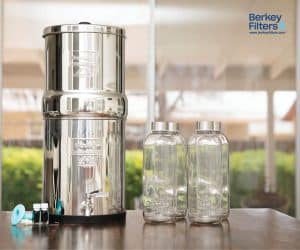





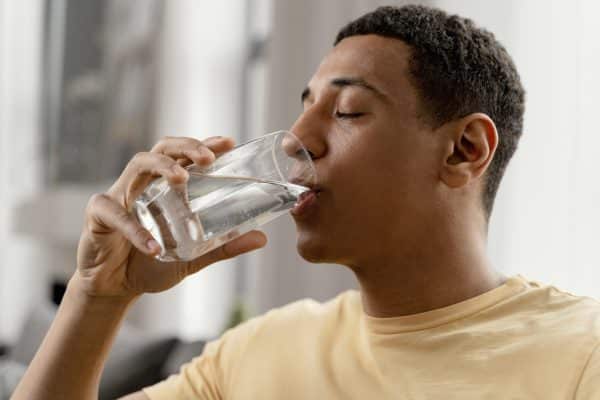



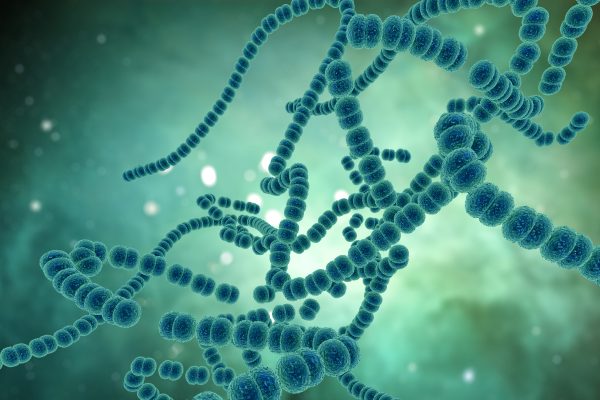


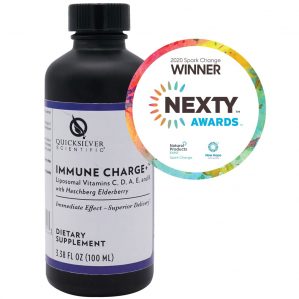

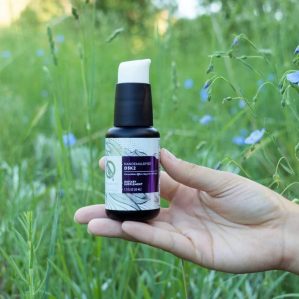












1 Comment
[…] Dehydration is a serious medical condition that is often not addressed by medical professionals until it is too late. The truth is, the average American is dehydrated, nutrient deficient, and mineral deficient. Hydration is a crucial aspect of maintaining good health. The human body is composed of approximately 60% – 75% water, which is essential for numerous physiological functions. Dehydration occurs when the body loses more water and minerals than it takes in, leading to a deficiency that can affect every system in the body. Understanding the causes, symptoms, and consequences of dehydration, as well as the importance of staying hydrated, is vital for overall optimal health, healing, and well-being. […]